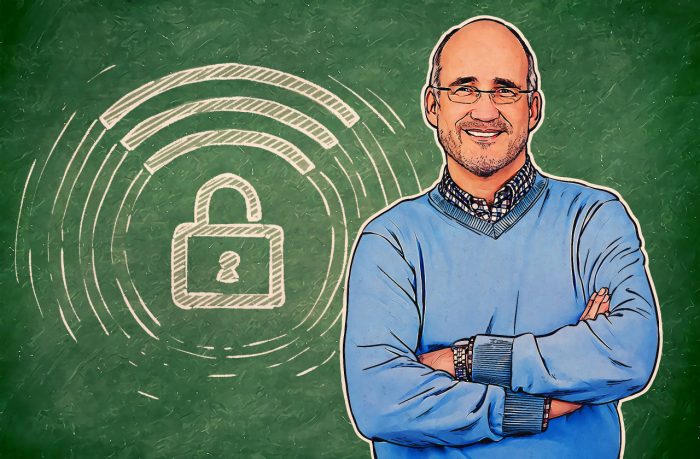
What’s a guest Wi-Fi network, and why do you need one?
We explain what a guest Wi-Fi network is, how to set one up, and what video game consoles and other IoT devices have to do with it.
62 articles

We explain what a guest Wi-Fi network is, how to set one up, and what video game consoles and other IoT devices have to do with it.

In today’s Kaspersky Lab’s Transatlantic Cable podcast, Dave and Jeff discuss Germany destroying smartwatches, Detroit community Wi-Fi and hacked cars.

Can’t resist the convenience of free Wi-Fi? Here’s a way to make it secure.

Every Wi-Fi network using WPA or WPA2 encryption is vulnerable to a key reinstallation attack. Here are some more details and means of protection.

An unconventional Android Trojan does not do anything to your smartphone; instead it hacks the Wi-Fi hotspot the smartphone is connected to.

Router manufacturers and ISPs are trying to make Wi-Fi set up as easy as possible — and in the security business, we know e-a-s-y spells trouble.

How criminals use fake Wi-Fi hotspots to steal data, and how you can use our solutions to protect yourself.

What if you have to transmit sensitive data and the only connection is open Wi-Fi? We’ve got you covered.

While we rest, cybercriminals work. Kaspersky Lab discusses the main risks for tourists and travelers on business trips.

Reasons why you should pony up the money for your own Wi-Fi and stop stealing it from your neighbours.

Ericsson and Qualcomm are promoting their new technology, LTE-U. Is it any better that LTE-A? And what is this combinations of letters supposed to mean, after all?

In the past, technologies that allow to see through walls were available only for some governmental services. Today, the situation changes owing to technological advancement that is followed by the price decrease.

Time and time again did we write about the dangers public Wi-Fi hotspots pose to users, but today we are talking about threats coming specifically from home wireless networks. Many

Kaspersky Lab revealed a cyberspy campaign, Darkhotel, which had been active for seven years in a number of luxury Asian hotels.

It’s not always easy to give general advice to Android users because the OS is so very diverse. But we have ten security tips that are relevant for almost any Android version.

Learn how to avoid becoming a victim of the wireless hack and how to control additional protection measures in our new product.

Preparing to watch your child trundle off to school with these expensive devices in their backpacks will be a lot easier if you guard against the many perils that can threaten them – theft, malware and unwanted Internet browsing chief among them.

Wireless networks are often insecure, and are notorious havens for attackers, who hang out in coffee shops, hotel swimming pools and anywhere else people congregate to the closest Internet connection, as they are easy targets to breach systems anonymously and steal personal data.

Our study during World Cup indicates one in four networks are dangerous and you must take care to avoid substantial loss.

Smartphones and tablets make it possible for business travelers to stay connected to their corporate networks while on the road as never before. But, like any other platform, these mobile